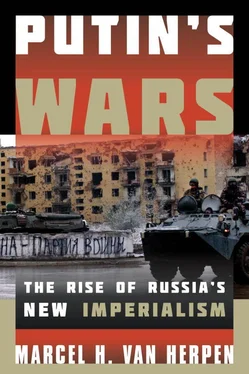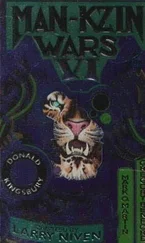There are nations in whom the passion for governing others is so much stronger than the desire of personal independence, that for the mere shadow of the one they are found ready to sacrifice the whole of the other. Each one of their number is willing, like the private soldier in an army, to abdicate his personal freedom of action into the hands of his general, provided the army is triumphant and victorious, and he is able to flatter himself that he is one of a conquering host, though the notion that he has himself any share in the domination exercised over the conquered is an illusion. A government strictly limited in its powers and attributions, required to hold its hands from overmeddling, and to let most things go on without its assuming the part of guardian or director, is not to the taste of such a people. [31] John Stuart Mill, Considerations on Representative Government , with a preface by F. A. Hayek, reprint of the original edition of 1861 (Indiana: Gateway Editions, 1962), 88. This compensatory function of imperialist policies had also been observed by the sociologist Max Weber: “Weber saw Russia as a typical imperialist power, its pressure for expansion coming from a combination of elements within Russian society: from the landhunger of the peasants; from the power interests of the bureaucracy; from the cultural imperialism of the intelligentsia, who, ‘too weak to secure even the most elementary demands for a constitutional order and guaranteed freedoms at home… find a support for their damaged self-esteem in the service of a policy of expansion, concealed under fine-sounding phrases.’” (David Beetham, Max Weber and the Theory of Modern Politics (London: George Allen & Unwin Ltd, 1974), 140.)
According to the German philosopher Peter Sloterdijk this tendency to compensate one’s lack of personal self-respect by indulging in the imperialist glory of one’s home country can be observed especially in the nation states of the nineteenth and twentieth centuries. These are for him “experiments in collective self-esteem and self-aggrandizement, directed by the mass media.” The foreign policy of these national states, “insofar as it included imaginary competition, was always dramatized by tensions of respect and disrespect.” [32] Peter Sloterdijk, Die Verachtung der Massen: Versuch über Kulturkämpfe in der modernen Gesellschaft (Frankfurt am Main: Suhrkamp, 2000), 33.
This element of surrogate satisfaction must not be underestimated. It clearly still plays an important role in present-day Russia, where citizens, whose political freedoms are more and more restricted, long for “national greatness” and a recovery of “Russia’s glorious past.” [33] Instead of seeking refuge in the ersatz self-esteem, provided by empire, a more authentic way to reappropriate the self-esteem that has been denied, is described by Axel Honneth in his book The Struggle for Recognition. “In the context of the emotional response associated with shame,” he wrote, “the experience of being disrespected can become the motivational impetus for a struggle for recognition. For it is only by regaining the possibility of active conduct that individuals can dispel the state of emotional tension into which they are forced as a result of humiliation.” The praxis thus opened up makes it possible, according to Honneth, “to take the form of political resistance.” (Axel Honneth, The Struggle for Recognition: The Moral Grammar of Social Conflicts (Cambridge: Polity Press, 1995), 138.)
Despotic rulers are sometimes poisoned, sometimes deposed. However, as a rule, they tend to have longer reigns than those of their democratic counterparts, who, at regular intervals, have to expose themselves to elections. Their long reigns enable despots to initiate long-term projects, such as territorial conquests, and bring them to fruition. Russia’s kings and tsars were often blessed with long lives, which led to extraordinarily long reigns. This was the case for the first three rulers, who may be considered the founders of the Russian imperial project. Ivan III (the Great) reigned for forty-three years, his successor Vassily III, for twenty-eight years, and Ivan IV (the Terrible), who was the first to call himself tsar, for thirty-seven years. Between 1462 and 1584 these three rulers reigned for 108 years altogether, a period that was only interrupted for fourteen years when Ivan IV was a minor. It is, therefore, no surprise that under this long and stable rule the foundations for Russia’s continuous expansion were laid.
Of course long reigns of monarchs were not a privilege of Russia alone. Absolutist monarchs in Western Europe equally could reign for long periods during which they were able to undertake ambitious expansionist projects. Louis XIV, the French roi soleil, is a good example of this. But with the end of absolutism in Western Europe and the advent of parliamentary democracy, Russia’s autocratic government gained an advantage. This advantage remained when tsarist autocracy made way for communist dictatorship. Stalin, who ruled for almost thirty years, was as staunch an empire builder as Ivan the Terrible, whom—in fact—he surpassed by creating the greatest Russian empire ever. [34] Stalin was a great admirer of Ivan the Terrible (Ivan Grozny), whom he considered as his great historical role model. According to Simon Sebag Montefiore, “[H]e regarded Ivan the Terrible as his true alter ego , his ‘teacher.’” (Simon Sebag Montefiore, Stalin: The Court of the Red Tsar (New York: Vintage Books, 2003), 177.) Montefiore described how Stalin, at the very moment that the German armies stood before Moscow, “kept reading history: it was now that he scribbled on a new biography of Ivan the Terrible: ‘teacher teacher’ and then: ‘We shall overcome!’” (Sebag Montefiore, Stalin , 396). Stalin admired in Ivan not only his imperialist policies, but also—if not more—his ruthless killing of the boyars , the Russian nobility. (On Stalin’s self-identification with Ivan the Terrible, see also Benedict Anderson, Lineages , 160, and Vladimir Fédorovski, “Le Fantôme d’Ivan le Terrible,” in Le Fantôme de Staline (Paris: Éditions du Rocher, 2007), 175–181).
Vladimir Putin’s attempt to rule possibly for twenty-four years must be seen within this perspective. Putin considers this long personal rule as a necessary precondition for his supreme geopolitical goal: the restoration of the lost empire.
There exists, furthermore, a fundamental mismatch between democratic rule and imperial rule. Democracies are based on the principle of the fundamental equality of their citizens. Imperial rule is based on a basic in equality between the rulers and the ruled. [35] An example of this imperial inequality was the fact that even when, in 1946, the Algerians obtained civil rights, they did not get the same voting rights as French colonists. They got these only in 1956 after the war of liberation had already started.
Imperial rule, exercised by a despotic ruler, is, therefore, more logical and consistent, because no distinction is made between the inhabitants of the imperial mother country and the inhabitants of the imperial possession: in fact no one is a citizen. All are, in the most literal sense, subjects. Jan Nederveen Pieterse stressed the
direct connection, a military nexus, between the exercise of imperialist force overseas and the application of force to repress domestic unrest; time and again we find that not only the same methods and equipment were deployed but also the same personnel. [36] Jan Nederveen Pieterse, Empire & Emancipation: Power and Liberation on a World Scale (London: Pluto Press, 1990), 187.
…In Russia, with tsarist generals, the great Suvorov among them, stamping on rebels at home and other peoples in Asia were always twin employments. This gives a concrete significance to the saying that a people that oppresses another nation cannot itself be free. [37] Nederveen Pieterse, Empire , ibid.
Читать дальше












